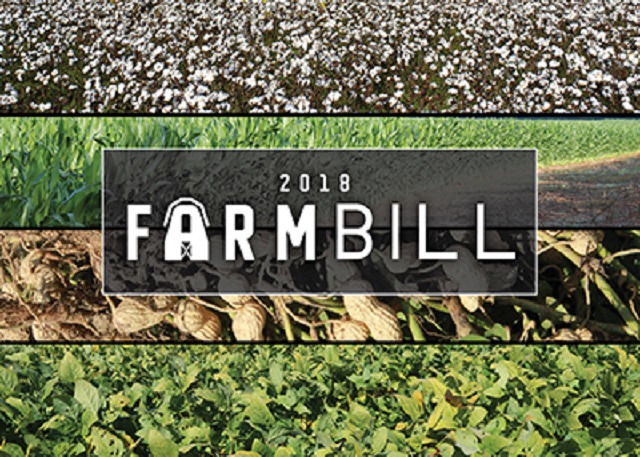MONTGOMERY – Final passage of a five-year farm bill by Congress today (Dec. 12, 2018) was welcome news for Alabama farmers eager to prepare for the 2019 crop year.
The House of Representatives approved the bipartisan legislation by a 369-47 vote, following Senate passage on Tuesday by an 87-13 vote. President Donald J. Trump has indicated he will sign the measure into law.
Alabama Farmers Federation President Jimmy Parnell said the farm bill makes significant improvements in federal farm programs.
“While no farm bill is perfect, this legislation addresses many concerns expressed by our members,” Parnell said. “It gives farmers greater flexibility in choosing programs to fit their individual businesses and allows prices and yields to be adjusted based on global markets and production history. We appreciate Congress and the Trump administration getting a farm bill approved so farmers can have certainty going into next year.”
Dubbed the Agriculture Improvement Act of 2018, the budget-neutral farm bill governs spending for a variety of federal programs including conservation, nutrition, crop insurance, agricultural research, forestry and foreign trade development.
Provisions of the 2018 Farm Bill
- Reference prices in the Price Loss Coverage (PLC) program may increase up to 115 percent based on market prices and are incorporated in the Agriculture Risk Coverage (ARC) program calculation. PLC yields may be voluntarily updated in 2020. Farmers will have the option to choose between ARC and PLC on a crop‐by‐crop and farm‐by‐farm basis in 2019 and annually beginning in 2021.
- Marketing loan rates increase by varying amounts. The rate for soybeans rises 24 percent to $6.20 a bushel. For corn, the loan rate increases to $2.20 per bushel, up from $1.95. The wheat loan rate changes from $2.94 per bushel to $3.38. Payment limits on marketing loan gains and loan deficiency payments are eliminated in the 2018 bill.
- Payment limitations remain unchanged, and the family definition is amended to allow nieces, nephews and cousins in family farm operations to participate in programs.
- Conservation programs are retained. The Conservation Reserve Program (CRP) acreage cap increases to 27 million acres, but rental rates and incentive payments are reduced to limit government competition with farmers who lease land.
- $75 million is approved for feral swine control.
- Crop insurance is preserved, as are existing disaster programs.
Efforts to reduce Supplemental Nutrition Assistance Program (SNAP) funding and restrict eligibility were not included in the final package, but authority was granted for greater accountability in the program.
American Farm Bureau Federation President Zippy Duvall said passage of the farm bill is especially important because the economic recovery in farm country has not kept pace with the rest of America.
“This 2018 farm bill is a complete package — one that will serve all Americans,” Duvall said. “Farm and ranch families in particular will find a good degree of risk management support they need to help them weather the prolonged downturn in the agricultural economy that many of us are facing. Next year, we are going to face continued challenges across farm and ranch country, and this new farm bill gives us the tools we will need to weather this ongoing storm.”
Alabama Sens. Richard Shelby and Doug Jones voted “yes” on the farm bill, as did U.S. Reps. Bradley Byrne, Martha Roby, Mike Rogers, Robert Aderholt, Mo Brooks, Gary Palmer and Terri Sewell.
Alabama Farmers Federation is the state’s largest farm organization with 350,000 member families.
See a summary of the Farm Bill here: http://alfafarmers.org/uploads/files/2018farmbillsummary.pdf.
Image courtesy of Alabama Farmers Federation



















